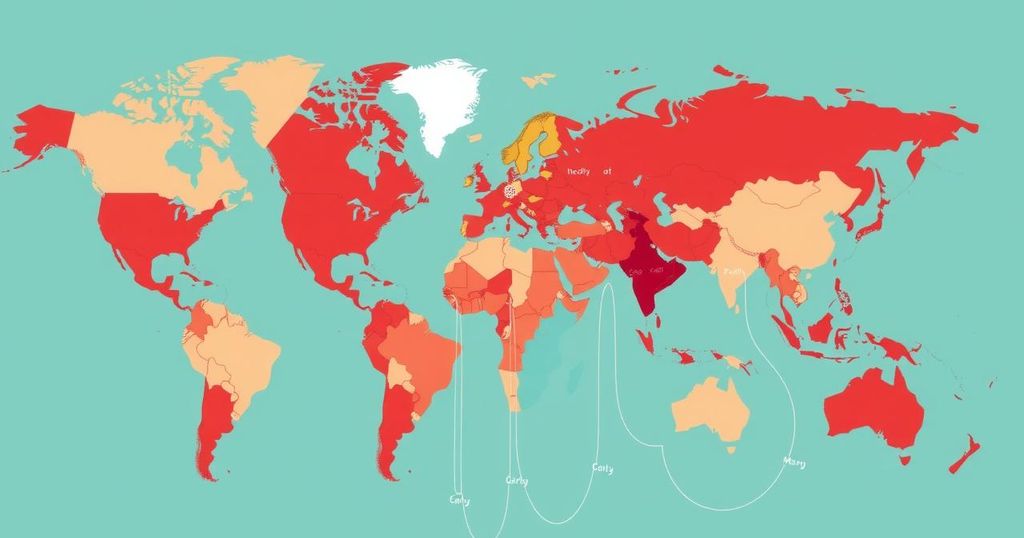Weather
21 KERALA BATTALION NCC, AFRICA, ASIA, BRAZIL, CAMBODIA, CONSUMER PROTECTION AGENCY, FOOD POISONING, FOOD SAFETY, KA, KARNAIL SINGH, KERALA, NATIONAL CADET CORPS, NCC, NIGERIA, NORTH AMERICA, NUTRITION, PUBLIC HEALTH, RAIN, SIHANOUKVILLE, SINGH, SOUTH AMERICA, UNITED STATES, WORLD HEALTH ORGANIZATION
David O'Sullivan
0 Comments
Global Food Poisoning Incidents Highlight Urgent Need for Enhanced Safety Regulations
Recent food poisoning outbreaks across Cambodia, India, Brazil, Nigeria, and the United States indicate significant public health risks. These incidents involve contaminated food sources affecting large groups, including children and military personnel, leading to hospitalizations and fatalities. Urgent investigations and calls for better food safety regulations are being voiced as community leaders seek accountability and preventive measures.
Food poisoning incidents have recently emerged as significant public health concerns across various countries. In Cambodia, a food poisoning outbreak linked to contaminated sandwiches at a city hall meeting left numerous attendees hospitalized, with dangerously high levels of E. coli and Staphylococcus aureus identified in the food. Prompt actions by local consumer protection agencies have called for adherence to stringent food safety guidelines. Meanwhile, in India, cases of food poisoning affected several children, prompting demands for investigations. Furthermore, incidents involving military personnel in Kerala and students in Nirmal have highlighted the pressing need for regular inspections and food safety measures in local educational institutions.
In Brazil, a tragic food poisoning case led to the death of a 17-year-old, following the consumption of tainted fish, and highlighted previous incidents affecting the same family, raising serious concerns about food safety regulations. In Nigeria, police are investigating a wedding reception where food contamination resulted in one death and multiple illnesses, indicating potential criminal negligence. Finally, in the United States, flight attendants exposed to contaminated food have sought union support to address their situation, exemplifying the broader implications of food safety failures in the workplace.
These incidents collectively underscore the critical importance of rigorous food safety practices to prevent such tragic occurrences, emphasizing the accountability of food service providers and governmental bodies in protecting public health.
The necessity for food safety regulations has become increasingly apparent following several food poisoning outbreaks globally. The reported cases across diverse regions embody not only the health risks associated with contaminated food but also the societal impact stemming from inadequate food handling practices. Governmental agencies and health organizations underscore the importance of adhering to established food safety standards to mitigate risks associated with potential foodborne illnesses.
The recent spate of food poisoning incidents highlights the urgent need for enhanced food safety protocols and strict regulatory oversight across the globe. Each case not only affected the health of individuals but also prompted community concerns and calls for accountability in food handling practices. To safeguard public health and prevent future outbreaks, it is imperative for food service providers and authorities to collaborate and enforce comprehensive food safety measures and protocols that adhere to established guidelines.
Original Source: www.foodpoisoningnews.com




Post Comment